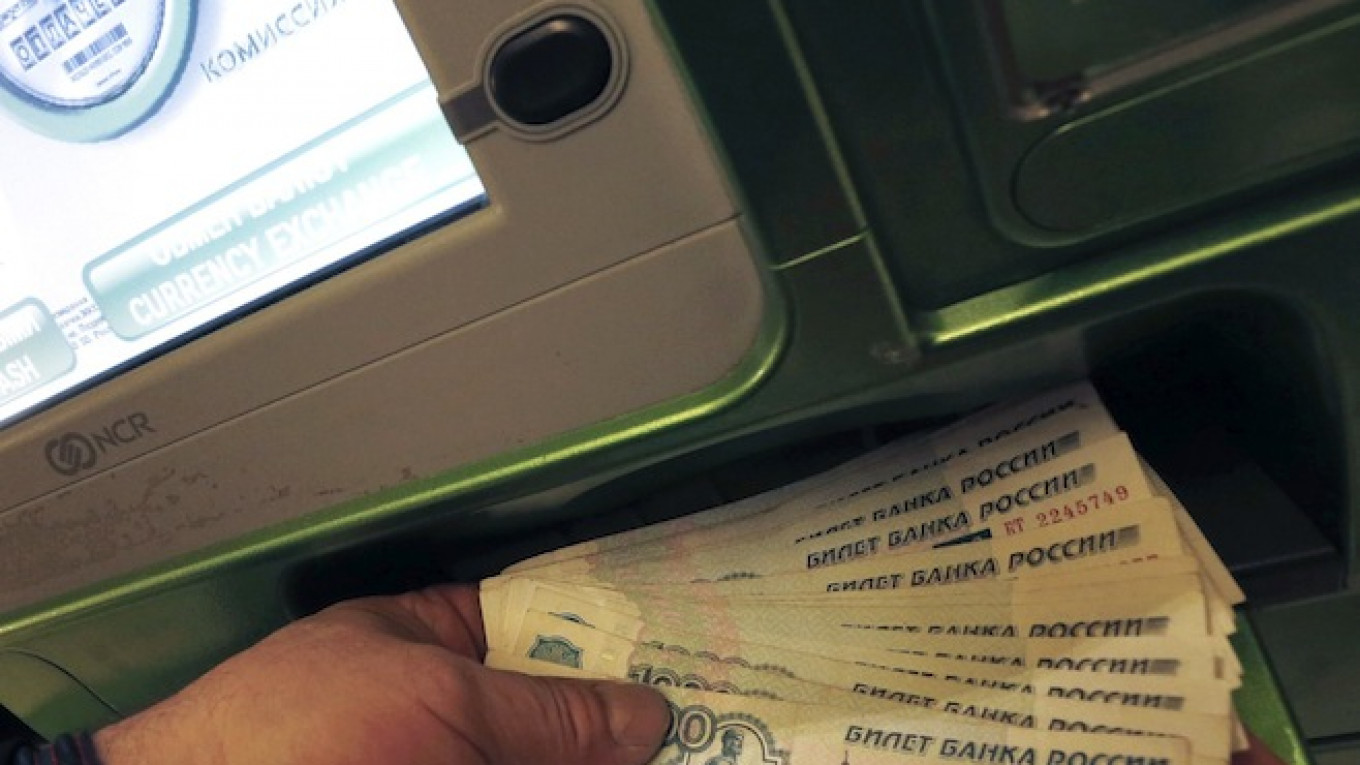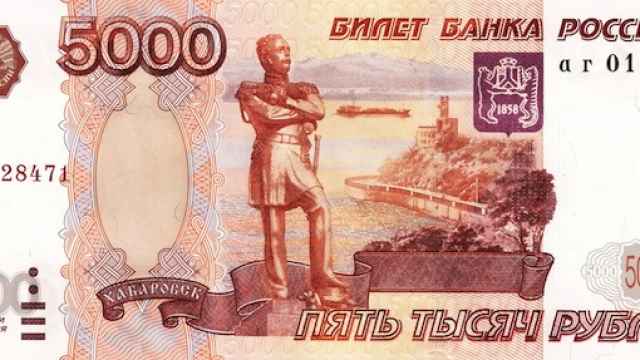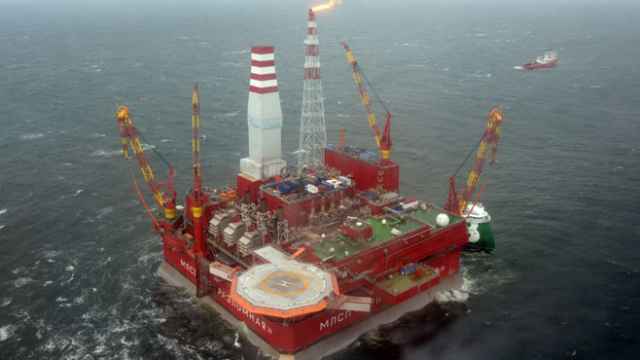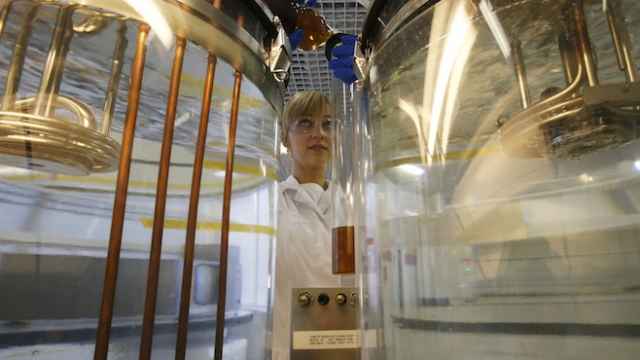Russia's economy will eke out growth this year but shrink in 2015 as a slump in oil prices and Western sanctions imposed over Moscow's role in the Ukraine crisis drag on activity, a poll showed Friday.
The poll of 14 analysts predicted that gross domestic product would grow by 0.5 percent this year, a slightly more optimistic prediction than last month's 0.3 percent forecast, following some recent data which beat expectations.
They saw year-on-year GDP growth falling to zero in the fourth quarter, however, then turning negative for all four quarters of 2015.
"Private consumption expansion is slowing down at an alarming rate on high interest rates and a weakening ruble," said Danske Bank economist Vladimir Mikhlashevsky.
The Russian economy was forecast to contract by 0.3 percent in the first quarter, 0.6 percent in the second quarter, 0.5 percent in Q3 and 0.1 percent in the final three months of 2015, implying a full-year decline of around 0.4 percent.
"The fall in investment is intensifying in conditions of growing financial market instability and general uncertainty, and also the increased cost of borrowing," said Otkritie economist Darya Isakova. "At the same time consumption … remains weak."
Inflation, boosted by the sliding ruble, was seen reaching 9.3 percent by year-end, and 9.7 percent by March, before falling to 6.5 percent at the end of 2015.
The poll predicted that the Central Bank would hold its key lending rate at 9.5 percent until the third quarter of next year. All 12 analysts who expressed a view expected the bank to hold the rate at its next meeting on Dec. 11.
"From the Bank of Russia, we don't expect any changes either in [hawkish] rhetoric … or in the key rate itself," said Isakova.
Analysts have revised their forecasts for the ruble sharply downward following a 14 percent slide in the Russian currency in November as prices for oil, Russia's major export, have collapsed. The poll predicted the ruble would recover somewhat, however, strengthening to 44.5 against the dollar by the end of 2014 and to 42.8 a year later, from 49.4 today.
"We do not see any support from fundamentals in the long run," said Mikhlashevsky. "Geopolitical risks remain, as the situation in eastern Ukraine is far from a peaceful solution."
A Message from The Moscow Times:
Dear readers,
We are facing unprecedented challenges. Russia's Prosecutor General's Office has designated The Moscow Times as an "undesirable" organization, criminalizing our work and putting our staff at risk of prosecution. This follows our earlier unjust labeling as a "foreign agent."
These actions are direct attempts to silence independent journalism in Russia. The authorities claim our work "discredits the decisions of the Russian leadership." We see things differently: we strive to provide accurate, unbiased reporting on Russia.
We, the journalists of The Moscow Times, refuse to be silenced. But to continue our work, we need your help.
Your support, no matter how small, makes a world of difference. If you can, please support us monthly starting from just $2. It's quick to set up, and every contribution makes a significant impact.
By supporting The Moscow Times, you're defending open, independent journalism in the face of repression. Thank you for standing with us.
Remind me later.






